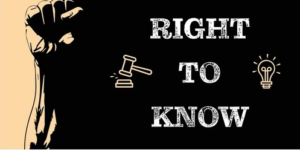GS-2: Indian Constitution

Key Highlights
- The STREET Court struck down a Delhi High Court order that had directed Wikimedia to remove a Wikipedia page citing defamation.
- The case involved a single judge’s ruling in October 2024 over adverse comments on Wikipedia about a defamation case involving the judiciary.
- SC Justices Abhay S. Oka and Ujjal Bhuyan emphasized that debate must remain open even when matters are sub judice.
- The ruling reiterates the constitutional right to know (Articles 19(1)(a) and 21) and upholds freedom of expression.
- The judgment is also a commentary on judicial overreach and the need to balance reputation with public transparency.
Detailed Insights
- Wikipedia operates under a decentralized model with users posting content based on established guidelines. The Wikimedia Foundation does not edit or create entries but offers the platform’s infrastructure.
- The Supreme Court viewed the High Court’s takedown order as excessive and an infringement on the right to public discourse.
- The ruling clarified that even if content is contentious or sub judice, vigorous public and press debate is essential to democracy.
- The judgment also protects contributors to open-source platforms from coercion by powerful entities, affirming democratic access to information.
Scientific/Technical Concepts Involved
- Information Technology Act and intermediary status: The Foundation qualifies as a technical intermediary, not a content publisher.
- Digital platform governance: The ruling touches upon digital rights, content moderation, and user protection under evolving legal frameworks.
Significance
- Strengthens the right to know and sets a precedent against arbitrary censorship.
- Highlights judicial accountability, reminding courts to remain sensitive to fundamental rights.
- Affirms the public nature of justice, quoting Jeremy Bentham’s principle that “publicity is the very soul of justice”.




